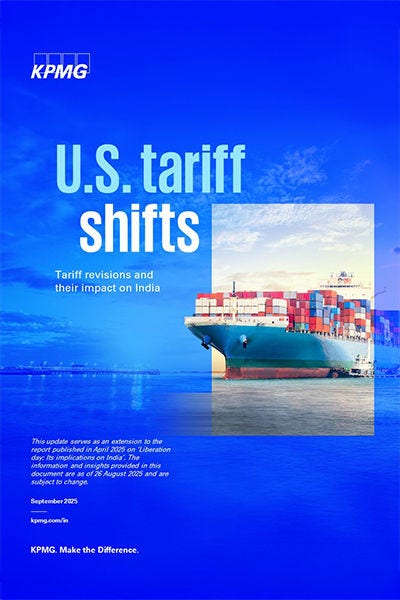The evolving U.S. tariff regime has introduced significant shifts in global trade dynamics, with direct implications for India’s export landscape. Following the announcement of a national economic emergency on 2 April 2025, the U.S. initiated reciprocal tariffs to address its widening trade deficit. A diplomatic pause was introduced to facilitate negotiations, later extended through July, with revised tariffs implemented from 1 August 2025.
These developments are expected to reshape supply chains, particularly in sectors where India holds strategic relevance. In this evolving landscape, Section 232 tariffs have had a notable impact on sectors the copper, steel, aluminium, and automobile, influencing pricing and competitiveness. India now faces increased sensitivity to external trade headwinds, prompting a reassessment of trade strategy and sectoral resilience.
Key highlights of the report include:
To address immediate tariff-related challenges, India could expedite trade negotiations with the U.S. to secure product-level exemptions for critical sectors. In parallel, targeted financial interventions such as subsidies, working capital support and export insurance could safeguard MSMEs and employment-intensive clusters, ensuring short-term stability and long-term competitiveness.
For sustained trade resilience, India could advance strategic dialogues with viable partners to unlock market opportunities in high-growth sectors. A diversified export approach would further support a balanced and robust trade ecosystem. These efforts can be reinforced through deeper bilateral collaboration and enhanced industrial capabilities via technology partnerships. A shift towards premium products and services may also elevate India’s global competitiveness. Together, these measures can help mitigate the effect of elevated tariffs and reinforce India’s position in global trade.
U.S. tariff shifts: Tariff revisions and their impact on India
Shifting U.S. tariffs are prompting India to recalibrate its global trade strategy and competitive positioning

How can KPMG in India help
Key Contact
Access our latest insights on Apple or Android devices





